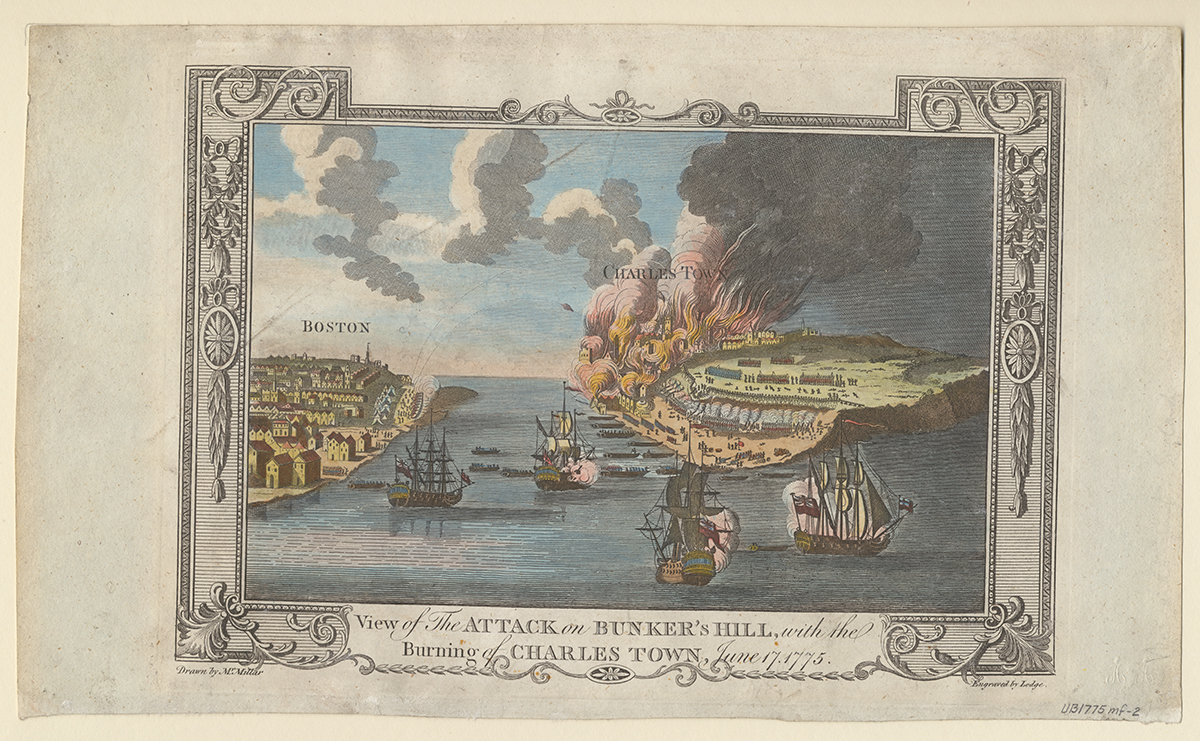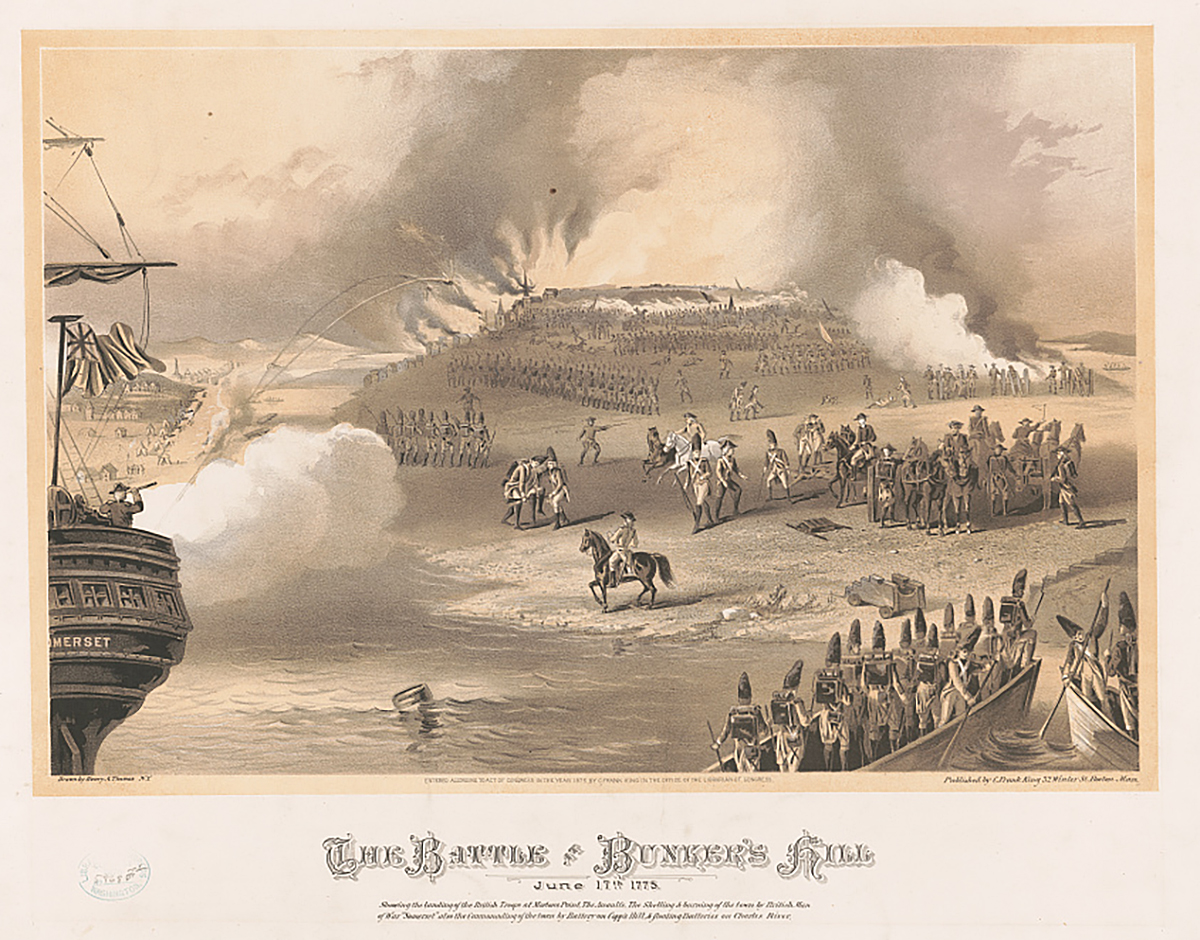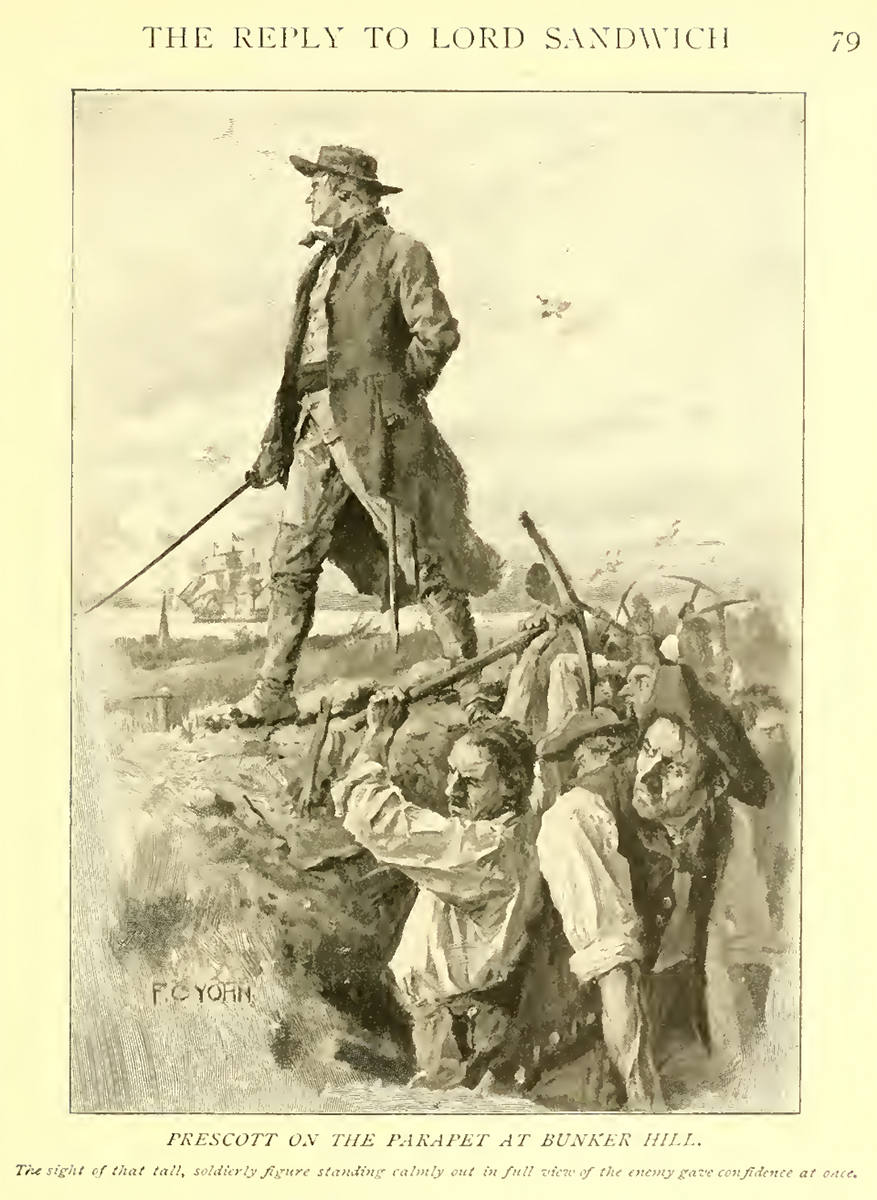On the morning of 17 June, an officer in the Connecticut Militia, Capt. John Chester, observed great confusion in the American ranks as British ships bombarded Breed’s Hill and the lower slopes of Bunker Hill.
"“We soon marched, with our frocks and trowsers on over our other clothes (for our company is in uniform wholly blue, turned up with red), for we were loath to expose ourselves by our dress, and down we marched. I imagined we arrived at the hill near the close of the battle. When we arrived there was not a company with us in any kind of order, although, when we first set out, perhaps three regiments were by our side and near us; but here they were scattered, some behind rocks and hay-cocks, and thirty men, perhaps, behind an apple-tree, and frequently twenty men round a wounded man, retreating, when not more than three or four could touch him to advantage. Others were retreating, seemingly without any excuse, and some said they had left the fort with leave of the officers, because they had been all night and day on fatigue, without sleep, victuals or drink . . .”"
Capt. John Chester, in a letter to Reverend Joseph Fish, 22 July 1775

![Page, Thomas Hyde, Sir. Plan of the action which happen'd 17th. June , at Charles Town, N. America. [1775] Map. Library of Congress.](https://www.thenmusa.org/wp-content/uploads/2025/03/v1service-gmd-gmd376-g3764-g3764b-ar090800.jpg)


![Page, Thomas Hyde, Sir, and John Montrésor. A plan of the action at Bunkers-Hill, on the 17th. of June, between His Majesty's troops under the command of Major General Howe, and the rebel forces. [1775] Map. Library of Congress.](https://www.thenmusa.org/wp-content/uploads/2025/03/v1iiif-service_gmd_gmd376_g3764_g3764b_ar090900-full-pct_25-0-default.jpg)
